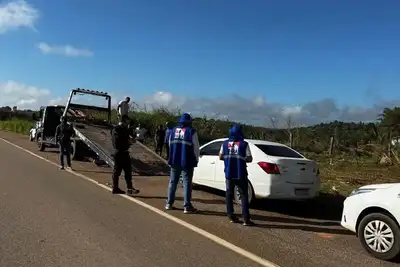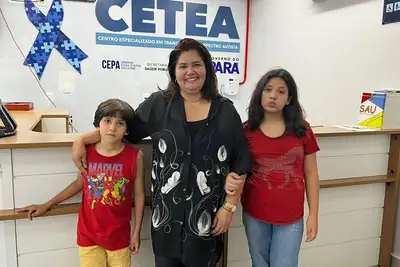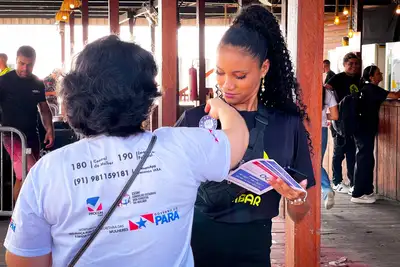Santa Casa warns about the risks of improper use and disposal of medications
To facilitate access to proper disposal locations, the institution is installing 'discardometers' in high-traffic areas of the hospital.
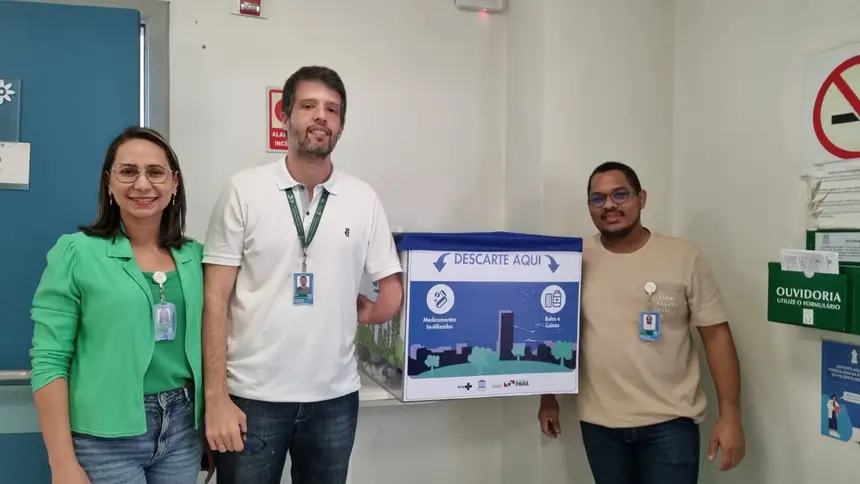
Despite working in the health sector, social worker Benedita Barroso admits to being unaware of the environmental impact of improper medication disposal. "I usually use all the medication, but when there's leftover, I throw it in the sink," she says while accompanying a patient's consultation at the Santa Casa de Misericórdia do Pará.
Like Benedita, many people do not know that throwing expired or unused medications in regular trash or down the drain poses serious risks of soil and water contamination and public health. On the other hand, keeping them stored at home for too long can lead to improper use, warns the institution's clinical pharmacist, Haila Vieira.
"The risks are numerous. An expired topical medication can cause allergies or irritation. In the case of ingested medications, besides potentially being ineffective, there is also a risk of adverse reactions and even diseases caused by improper use," explains the professional.
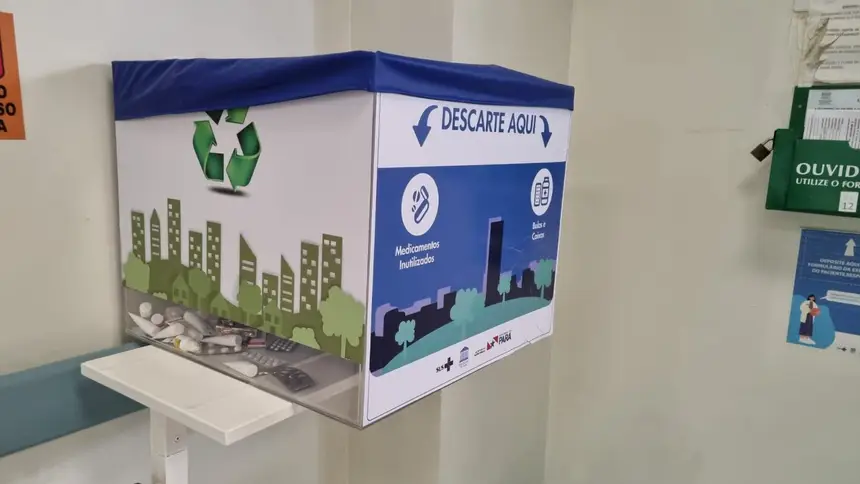
Discardometer: initiative for safe disposal
To combat this problem and encourage conscious disposal, Santa Casa has begun installing medication collection boxes, called discardometers, in high-traffic areas of the hospital. The initiative is aimed at both staff and patients and visitors.
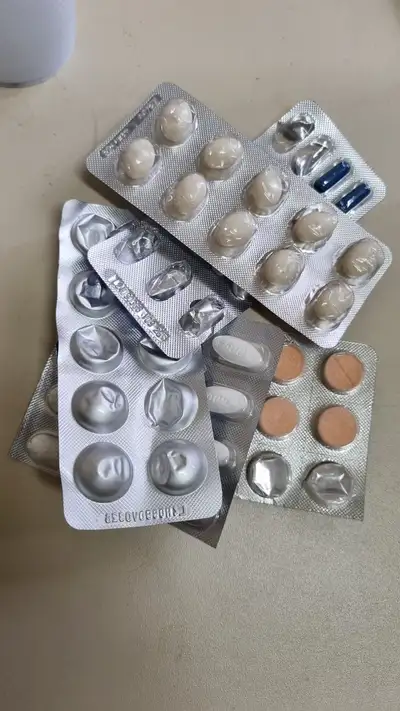
"Improper disposal of medications can contaminate soil and water, as well as encourage self-medication and irregular reuse. By providing a collection point, we promote awareness and ensure safe disposal through incineration," emphasizes Haila Vieira.
The action also helps Santa Casa comply with good waste management practices outlined in Anvisa's Resolution RDC No. 222 and Conama's Resolution No. 499 (National Environment Council), as explained by the institution's Pharmaceutical Assistance Coordinator, André Azevedo.
"With the discardometer, we adjust the final destination of the waste and strengthen Santa Casa's environmental management, aligning practice with public policies and regulatory standards," he states.
Environmental education and expansion
In addition to the installation of discardometers, an educational campaign on the correct disposal of medications is scheduled for June. Soon, the institution also intends to expand the initiative with collection points for batteries and accumulators, another hazardous waste to the environment.
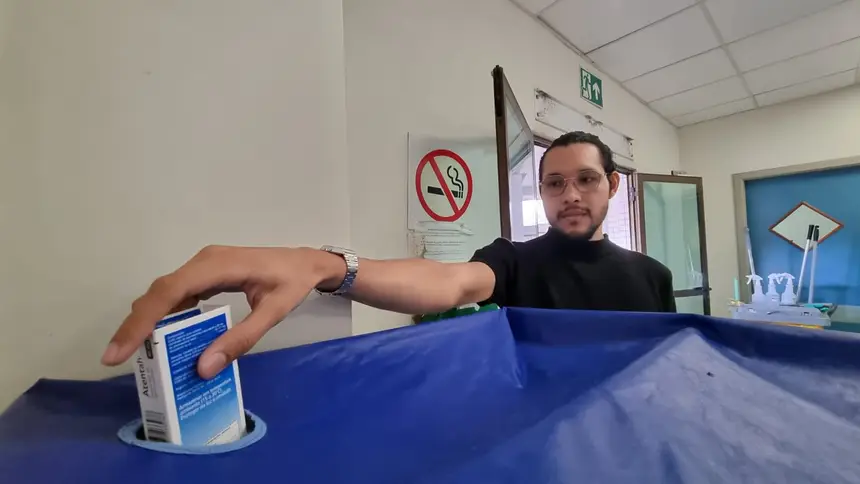
For nurse Marcos Gomes, Hygiene Manager at Santa Casa, the project has great outreach potential.
"Today the discardometer is a fundamental tool. Many people carry expired medications in their bags or keep them at home. With the collection point, we offer a safe alternative and also promote public awareness regarding the correct separation of these wastes," he says.
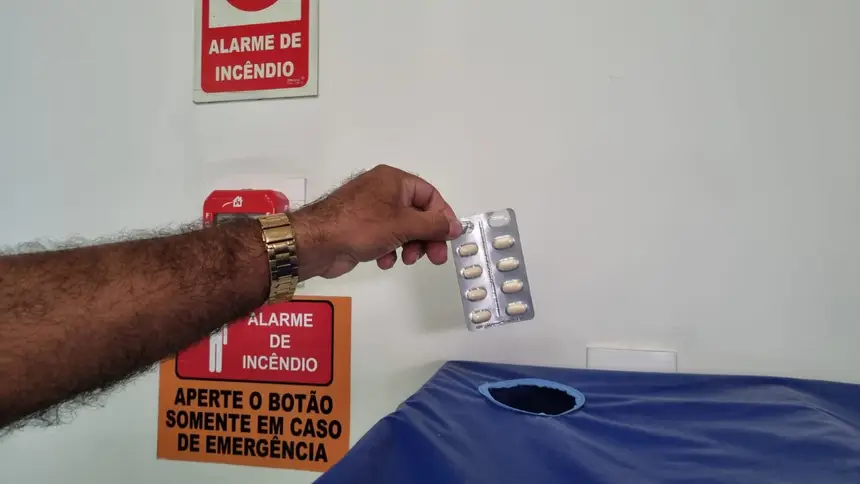
Awareness in practice
Student Matheus Martins learned about the new initiative during a visit to the hospital and went to check out the equipment. Now, he intends to use it whenever necessary.
"I usually don't keep leftover medications at home, but I also didn't know that I couldn't throw them in regular trash. Now that I know the risks and that there is a proper place, I will definitely use the collector," he states.



